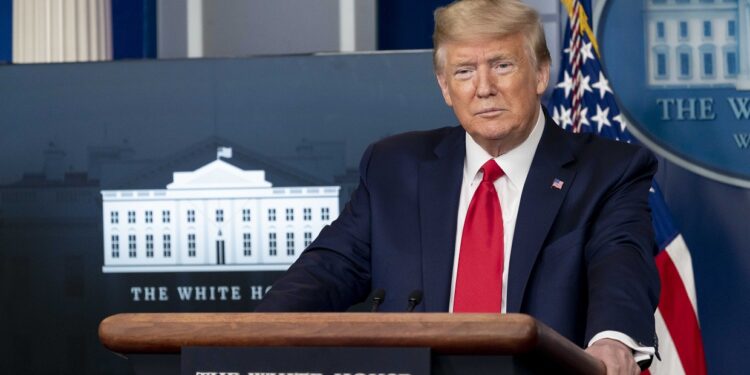On May 13, 2025, a coalition of 20 Democratic-led states filed two separate federal lawsuits challenging the Trump administration’s attempt to condition federal funding on immigration enforcement compliance. The states—led by California, Washington, New York, Illinois, and New Jersey—allege that the administration is overstepping constitutional boundaries by tying billions of dollars in federal disaster-relief and transportation grants to new policy demands, including participation in immigration enforcement and the elimination of diversity, equity, and inclusion (DEI) programs.
The lawsuits, filed in federal courts in California and Massachusetts, argue that the Trump administration’s actions violate both the U.S. Constitution and the principles of federalism. According to the legal complaints, the federal government is unlawfully attempting to coerce states into adopting immigration policies that align with Trump’s hardline stance. In particular, the administration is reportedly seeking to penalize so-called “sanctuary states” by withholding critical federal funds unless they agree to cooperate with federal immigration authorities, including sharing information about undocumented immigrants and allowing U.S. Immigration and Customs Enforcement (ICE) access to local jails.
Washington State Attorney General Bob Ferguson, a frequent legal opponent of Trump-era policies, stated that the lawsuits aim to protect state sovereignty and ensure that federal funding cannot be used as leverage to force compliance with controversial federal mandates. He emphasized that public safety funding and disaster relief should not be contingent on political alignment or immigration enforcement practices.
Legal experts point to the potential constitutional issues raised by the lawsuits, particularly under the Tenth Amendment, which reserves powers not delegated to the federal government to the states. The plaintiffs argue that the federal government’s attempt to tie unrelated policy requirements to funding allocations constitutes an abuse of the Spending Clause, which gives Congress the authority to attach conditions to federal funds but prohibits coercion.
The move marks the latest in a long line of legal confrontations between Democratic states and the Trump administration over immigration, civil rights, and executive power. These lawsuits echo earlier challenges to Trump-era efforts to cut off funding to sanctuary jurisdictions—attempts that were frequently struck down by the courts. However, the current legal battle comes at a politically charged moment, as immigration remains a top issue heading into the 2026 midterms and the broader policy landscape continues to shift under Trump’s renewed influence.
If successful, the lawsuits could block the administration from enforcing its new funding conditions and preserve the authority of states to set their own policies on immigration, diversity initiatives, and public safety. The cases are expected to move through the federal judiciary quickly, with legal observers anticipating appeals that could ultimately bring the issue before the U.S. Supreme Court.
This latest clash underscores the enduring tension between state governments and federal executive power, particularly when partisan divides shape divergent approaches to immigration enforcement, public resource allocation, and constitutional governance. As legal proceedings unfold, the outcome may have significant implications not only for state-federal relations but also for millions of residents who rely on federally funded programs for infrastructure, emergency aid, and community safety.
For SEO relevance, the lawsuits center on key themes including Trump immigration policy 2025, federal funding and sanctuary cities, state lawsuits against Trump, DEI program funding disputes, and the role of ICE in local enforcement. As political and legal debates over immigration and executive authority intensify, this case will likely remain a focal point in U.S. policy discourse throughout the year.







